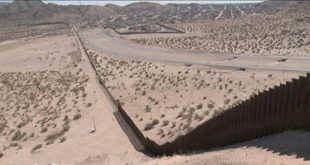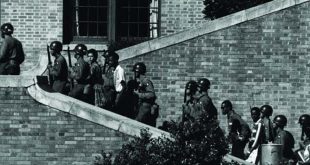In accordance with its Constitution and the basic principles of international law, the Republic of Serbia, in good faith, offers the political platform for talks with representatives of the provisional institutions of self-government in Pristina (PIS), hopping that lasting and sustainable solution for Kosovo and Metohija is achievable through sincere dialogue between the two sides.
Therefore:
- The Government of the Republic of Serbia, with the aim of protecting its state interests, refrains from achieving any further partial agreements with PIS within the framework of the so-called “technical dialogue” due to the fact that they lead to the alteration of the state of affairs in the field to the advantage of PIS, as well as the weakening of Serbia’s negotiating position in the political dialogue at the high level and may lead to a potential destabilisation of circumstances relative to security.
- The basic starting point for the talks with PIS at the high political level is that the Republic of Serbia, pursuant to international law, and further to its Constitution and the will of the people, does not recognise and will never recognise the unilateral declaration of the “independence” of Kosovo;
o All rights and competencies, that may be awarded to PIS as a result of the negotiations, will be merely transferred onto the organs of AP KiM in accordance with the Constitution, laws and other regulations of the Republic of Serbia
- The basic principle of the negotiations shall be – package talks – “nothing is agreed upon until everything is agreed upon”;
- Proceeding from the fact that Serbia has through its actions, in the hitherto conduct of the political process, despite and after the illegal unilateral declaration of the “independence” of Kosovo, offered to PIS limited legal and international personality and legitimacy, the talks on the high political level should be held with regard to overcoming institutional parallelisms in the territory of AP KiM, not encroaching on the question of the international and statehood status of PIS, with the goal of establishing authorities in the territory of the Province that would be recognised by all sides involved in the process, and establishing strong legal and political guarantees at the provincial and international community levels, for political, territorial and other rights of national communities throughout the entire territory of the Province;
- The Republic of Serbia, through a specially authorised high political representative, and specially authorised negotiations team, particularly insists on:
A) The establishment of an Autonomous Community of Serbian Municipalities in Kosovo and Metohija (ZSO KiM), comprised of the territorial autonomy of four municipalities from the northern part of Kosovo and Metohija and other municipalities with a majority Serbian and minority population (e.g. Gracanica, Strpce. Gora, etc.), on the basis of a special Statute on the Autonomy of the Community of Serbian Municipalities of Kosovo and Metohija (as is the case e.g. in Catalonia) that shall be guaranteed by the highest legal act of the Province and by a public declaration of the representatives of the international community involved in the process;
– This autonomy should presuppose the existence of authentic competencies in the fields of:
o Education (elementary, secondary and higher education); o Healthcare (all levels of healthcare); o Sports; o Culture;
o Public information services; o Environmental protection;
> Formulation and management of policies for the protection of the environment and sustainable development (Statute of Autonomy of Catalonia, Article 84, paragraph 2, item j).
o Urban planning;
> The exclusive authority of regulating urban planning and management instruments of the entire process, as well as in the procedures for processing requests and their approval (copied from the Statute of Autonomy of Catalonia);
> The exclusive authority of regulating the system for development of urban land, which includes the determination of the criteria for the different kinds of land and land use (copied from the Statute of Autonomy of Catalonia);
^ Exclusive authority of managing the mechanism for the determination of the legality of ownership over land and property (copied from the Statute of Autonomy of Catalonia);
~r Exclusive authority of creating a development policy for land and housing, management of public areas with the existence of a system of efficient administrative intervention in the process of building,
urban planning and use of land (copied from the Statute of Autonomy of Catalonia);
o Agriculture;
o Forestry;
o Waterpower engineering; o Hunting and fishing;
o Judiciary (public prosecutors of first instance and courts of first and second instance, the courts in the region of the ZSO KiM would be established by law on the provincial level; however it would be determined in the agreement that shall result from the political process, that the law must envisage a mechanism whereby the citizens of the ZSO KiM could, through their representatives, influence the election and composition of the courts. These courts would have the authority in the region of the ZSO KiM, pursuant to the regulations enforced in the Province, to decide in litigations relating to basic personal relationships, rights and duties of citizens, to pronounce sentences and other measures against the perpetrators of criminal offences and other punishable acts determined by law; to decide on the legality of individual acts of organs and organisations that exercise public authority; to settle cases relating to property matters or labour law matters and decide on other issues in accordance with the enacted laws);
o Internal Affairs (The Autonomous police could be established on the model of the Autonomous police of Catalonia and with similar competencies. It would be, in a formal sense, a part of the Kosovo police forces, although it would function under the authority of the Executive Council of the ZSO KiM in the territory of the Autonomy and pursuant to the competencies defined by laws in accordance with the highest legal act of AP KiM and the Statute of the ZSO KiM).
o Mining;
o Energy;
o Telecommunications;
o Trade and economic policy;
> The Executive Council has the exclusive authority in matters relating to trade and the organisation of fairs, including the
administrative planning of trade activities as well as regulating fair activity in the territory of the ZSO KiM (taken from the Statute of Autonomy of Catalonia, Article 121, paragraph 1, item a-t).
o Fiscal policy and finances;
o Special competencies of the ZSO KiM relating to the uniform register of companies, socio-political organisations and religious communities;
o The authorities of the ZSO KiM should have, in accordance with the highest legal act of AP KiM, a guaranteed possibility of establishing direct cooperation with the Republic authorities, as well as a right of supplemental funnding from the means allocated by the budget of the Republic of Serbia;
o The ZSO KiM shall independently decide on the appearance and use of its symbols (coat of arms, flag, anthem etc.), while the law on the provincial level shall determine more precisely the usege of the symbols of the Province and the common use of the symbols of the Province and territorial autonomy;
o The other elements of the internal organisation (type, composition and mode of the election of the authorities) of the ZSO KiM will be harmonised through political dialogue;
> ZSO KiM will in any event need to have an Autonomous community Assembly and an Executive Council of the Autonomous community that would be tasked with executing tasks from the scope of the ZSO KiM competencies, as envisaged by the Statute.
B) The establishment of a special status for the village enclaves in which Serbs and other non-Albanians form the majority population, and possibly for the region of the Gora municipality (the latter is merely a possibility, in case that the majority of the population in Gora does not wish this municipality to enter into the composition of the ZSO KiM).
o When determining the territory of the regions encompassed by the special status, especially outside the city areas, the starting point wherever possible should be the ethnic structure that existed before the ethnic cleansing (considering that it would be unacceptable for the international community as well if the results of such ethnic cleansing should be the starting point of finding a given political solution in Europe in the 21st century);
o The original competencies of the regions with special status would be narrower in comparison to the competencies of the ZSO KiM, but would necessarily have to encompass the influence on the selection of personnel and structure of the internal affairs authorities for the given regions, judiciary of first instance, education, healthcare as well as issues that pertain to the field of basic political and economic rights;
o The agreement can determine that the regions enjoying special status may exercise some of the foregoing competencies in cooperation with the authorities of the ZSO KiM, in accordance with the laws and other regulations that are enforced in the Province;
C) The establishment of a special contractual relationship between the Serbian Orthodox
Church and PIS;
o With this agreement, which should take into account the experiences of the Lateran Accords regarding the status of the Roman Catholic Church in Italy, an internationally valid guarantee should be granted in respect to the premises belonging to the Serbian Orthodox Church, church property and the activity of the Serbian Orthodox Church in the territory of the province.
o The details relating to the negotiating position on this matter must be harmonised with the representatives of the Serbian Orthodox Church.
D) The political solution adopted as a result of the negotiations envisages that the highest
legal act of AP KiM shall proclaim a lasting guarantee for the return of the persons that
were displaced from Kosovo and Metohija as well as of their descendants.
o The adoption of a law is needed on the return at the level of the Province, which will determine the duty of the authorities of AP KiM, the ZSO KiM, and the units of the local self-government in respect to the return of refugees and internally displaced persons;
o It is necessary to secure and guarantee rights and conditions, in the territory of the ZSO KiM, for the sustainable return of those persons that were expelled from Kosovo and Metohija, whose return was made impossible to their homes and other parts of AP KiM;
E) AP KiM would have to be defined by the highest legal act of the province as a
demilitarised zone in which the only legal armed formation would be the Kosovo police
and the Autonomous police of the ZSO KiM, which would, in a formal sense, be its
integral part.
o The guarantors for safety and the demilitarised status of AP KiM could be the military forces of the EU (EUROCORPS), the Army of Serbia and the Armed forces of the Republic of Albania.
F) The negotiations must also result in the creation of an efficient legal and organisational mechanism that would enable the inclusion of the representatives of the Serbian and other non-Albanian population in the working and decision-making of all of the institutions and authorities of AP KiM, in such a way so as to preclude any form of majorization by the Albanian representatives in these institutions and authorities.
o The Serbian side proposes the division of AP KiM into several regions, of which a distinct one would be the ZSO KiM.
o The Serbian side proposes the formation of a bicameral Assembly of AP KiM, in which the upper house would represent the House of Regions and Religious Communities, while the lower house would be the House of Citizens.
> In accordance with this proposal, all regions and main religious communities would be equally represented in the House of Regions and Religious Communities, while in the House of Citizens, the Serbian and non-Albanian population would be represented pursuant to the guaranteed quotas and election results.
> The presiding chairperson of one of the two Houses, as well as the Vice-president of the other of the two Houses, should be representatives of the Serbian and non-Albanian population chosen by the majority of the representatives elected from the ranks of the Serbian and non-Albanian population in that House.
y Efficient procedural mechanisms must exist that would preclude the rendering of decisions by way of outvoting in matters that directly impact the competencies of the ZSO KiM and the rights of Serbian and other non-Albanian population in AP KiM.
Source: http://www.peacefare.net
 Печат – Лист слободне Србије Политички недељник, актуелна политичка дешавања, друштво, свет, култура.
Печат – Лист слободне Србије Политички недељник, актуелна политичка дешавања, друштво, свет, култура.







THE STORY OF SERBIA
In the Beginning when GOD was creating the world, he was sitting on a cloud, telling his pal the Archangel Gabriel what he planned for Serbia.
“Gabby”, says, “Here, I’m going to give this place:
High majestic mountains, purple glens, soaring eagles,
streams laden with salmon, blue fields of plumb from
which a rakija colored nectar can be made,
people with abundant intelligence to invent such things
as electricity and the telephone,
green lush spectacular ski courses,
coal and copper on the ground,
thermal springs in the ground”.
“Hold up! Hold up!” interjected the bold Gabriel.
“Are you not being too generous to these Serbs?”
Back came the Almighty’s reply, “Not when you see the fucking neighbors I’m giving them!”